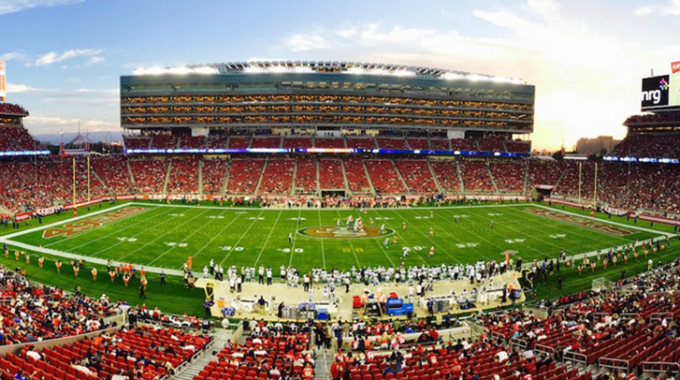We’re less than two weeks into President-elect Trump’s transition. So far, Mike Pence has replaced Chris Christie as leader of the transition team and Republicans are jousting for positions within the Trump administration. A country surprised by Trump’s late-breaking victory is following the transition with curiosity, as well—because it seems that with the unpredictable Donald Trump, anything can happen.
The future president is seeding his Cabinet wishlist with players from both ends of the Republican Party’s spectrum.
Already, Trump has made some polarizing picks. He chose party sweetheart and RNC chairman Reince Priebus as his chief of staff, then counter-balanced his selection with former Breitbart News executive chairman Steve Bannon as his chief strategist.
What would you give to be a fly on the wall when Priebus and Bannon start working together? We can’t do that, but researchers at Unanimous A.I. asked a Swarm Intelligence what it thought about these two choices and what they mean for the Trump administration.
What is Swarm Intelligence?
It’s a mix of computational algorithms and real input from real people in real time. The process taps the wisdom, insights, and intuitions of human participants as they think together as a closed-loop system, using swarming algorithms to converge on optimized answers. The mix of human wisdom and software processing has proven to reveal powerful insights (see how Swarm Intelligence predicted every MLB play-off team, plus the World Series matchup and winner here). All of the following questions were asked on November 16, 2016.
Is Reince Priebus qualified to be chief of staff to the POTUS?
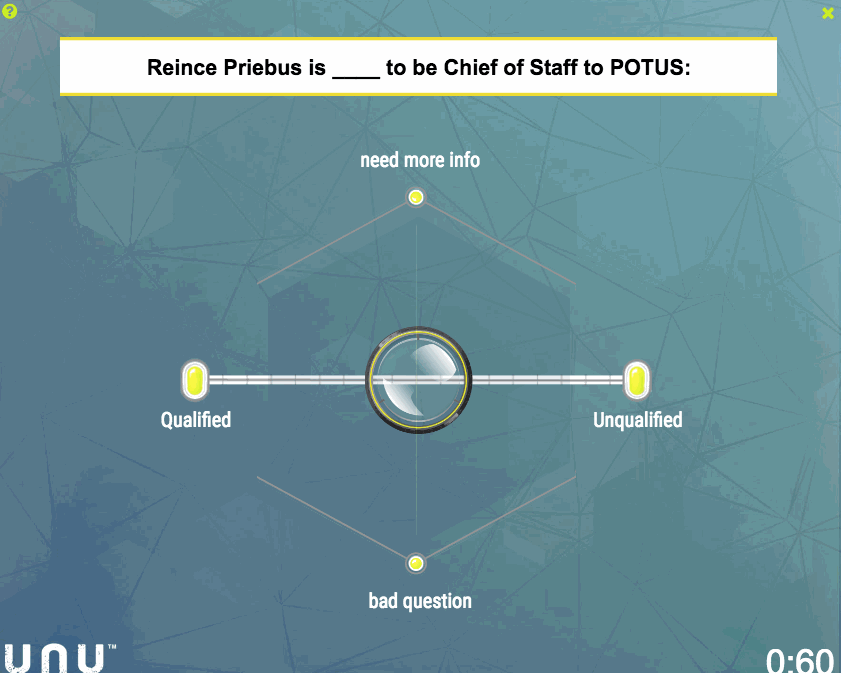
What best describes Trump’s choosing Priebus as chief of staff?
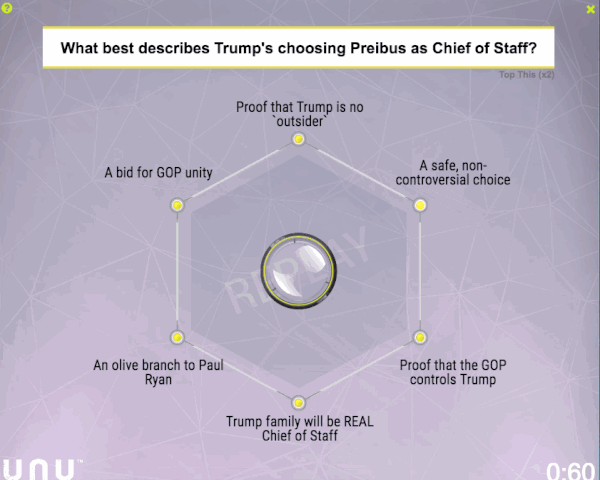
Is Steve Bannon qualified to be chief strategist to the POTUS?
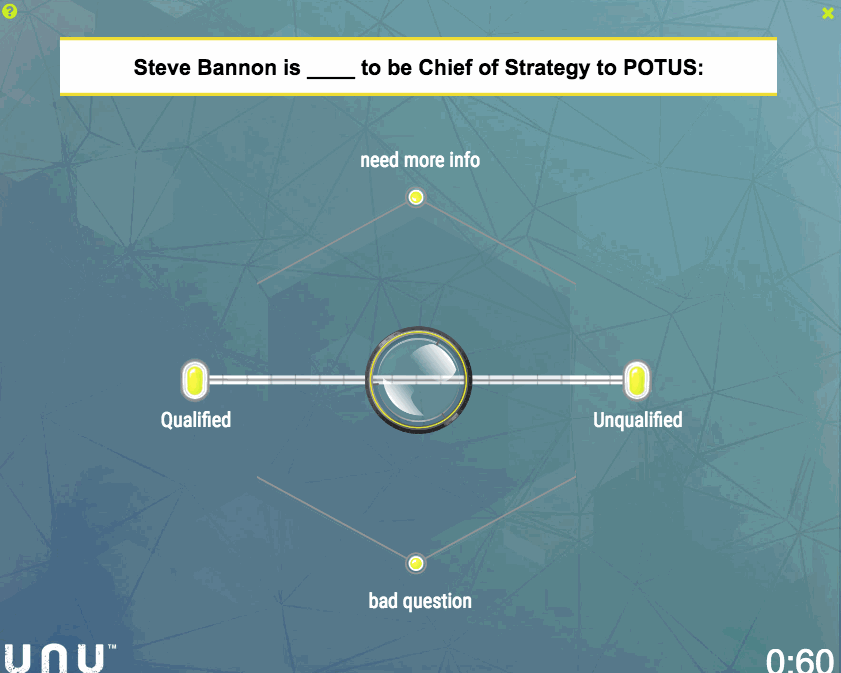
What best describes Trump’s choosing Bannon as chief strategist?
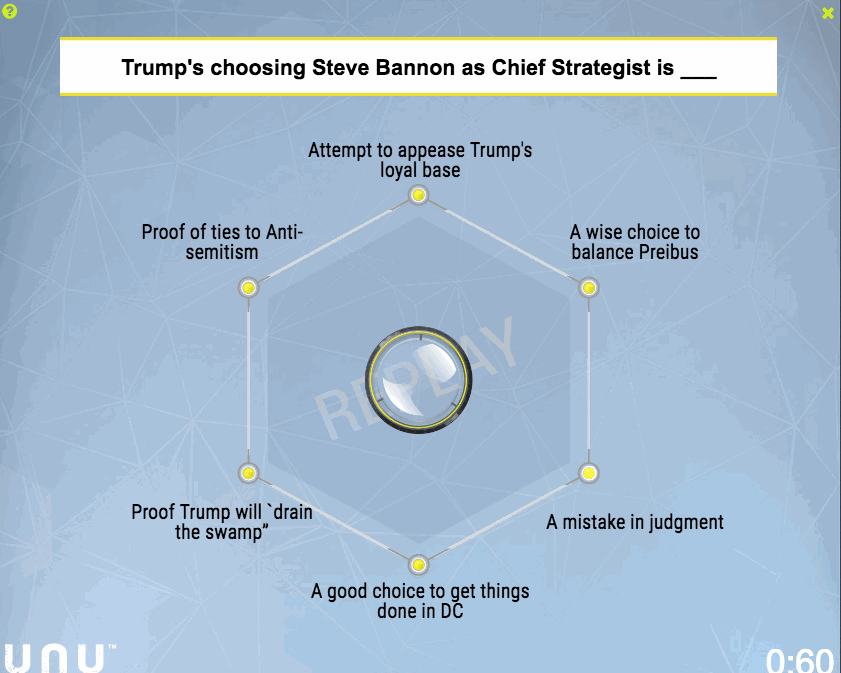
How it works: Each magnet in the videos above represents an individual. Each individual uses his/her magnet to pull toward a choice, albeit with the ability to change their mind along the way. No, this is not a poll – it’s a system, with feedback – that converges on optimal answers.
Why are swarms better than polls? Polls are polarizing, revealing the divisions among groups, exposing which sentiment might be the most popular in isolation. Swarms are unifying, driving groups to converge on the sentiment they can best agree upon. And how do swarms converge? The fact is, individual views are not monolithic, they’re complex – people willing to consider multiple options, each associated with different emotions and convictions. Swarming finds the answer that optimizes the collective support among the full group.
Let’s face it, Polls took a big hit in the 2016 election for being wrong. Why? Polls don’t account for the dynamics of emotion and conviction across different options. Evan Witt, head of the Princeton Survey Research and president of the National Council on Public Polls, told NPR: “We know polls do a poor job with emotion/enthusiasm/commitment.”
Here’s an example of how swarms achieve what polls cannot. In the question asking what best describes Trump’s decision to select Bannon as his chief strategist, the swarm started out evenly spit among multiple sentiments – (a) A mistake in judgement, (b) Appease Trump’s base, and (c) Proof of ties to antisemitism. Had we taken poll, we’d have no clear conviction. But as shown in the swarming data below, the group negotiated in real-time, converging on the one sentiment that they could best agree upon – “A mistake in judgement”.
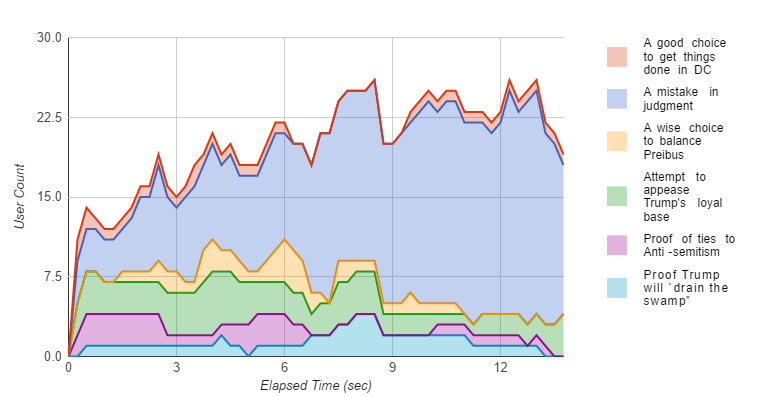
A similar effect was seen in the question about Priebus – the swarm was highly divided at first, but converged over time on a strong sentiment that the pick of Ryan Preibus was the safe and non-controversial choice.
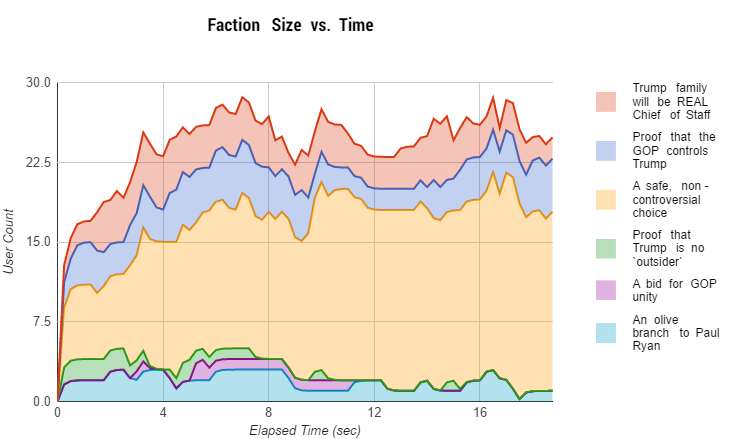
Enabling groups to converge rather than polarize makes swarms far more insightful than polls or surveys. We can only imagine what might happened if we elected presidents this way? After all, whether you are for him or against him, the country is now deeply polarized over Trump. And, had the election gone the other way, the country would have been deeply polarized over Clinton. If elections were done by swarms, well, maybe we would have converged on a solution that most people could agree upon. That’s the power of swarms.
Want to try swarming? Now you can. The UNU platform is now open to BETA USERS, with swarms forming on a range of topics from sports and politics, to movies and music. If you’d like to join the UNU Beta program, just fill out the form below:



